Why both old and young are against raising the retirement age in China

China has been grappling with the issues of an ageing population, a shrinking workforce and depleting pension funds. Raising the statutory retirement age has been put up as one possible measure and solution to the problem.
However, as newly appointed members of the Central Financial and Economic Affairs Commission of the Chinese Communist Party (CCP) had their first meeting earlier this month, the discussion about raising the statutory retirement age was sidestepped, even as the commission acknowledged the urgent need to deal with the country's ageing population.
Interviewed academics feel that while China cannot put off raising the retirement age any longer, the government also needs to further deepen reform and opening up, grow the economic pie and solve the soaring youth unemployment problem.
The number of working people has fallen by more than 41 million in the past three years...
Provinces getting old before getting rich
China's population fell by 850,000 last year, the first shrinkage in 60 years, signalling a growing demographic crisis.
The size of China's working-age population, which began to decline as early as 2012, is declining by an average of more than three million per year. The number of working people has fallen by more than 41 million in the past three years, reflecting the pandemic's toll on the economy and the accelerated decline in the working-age population.
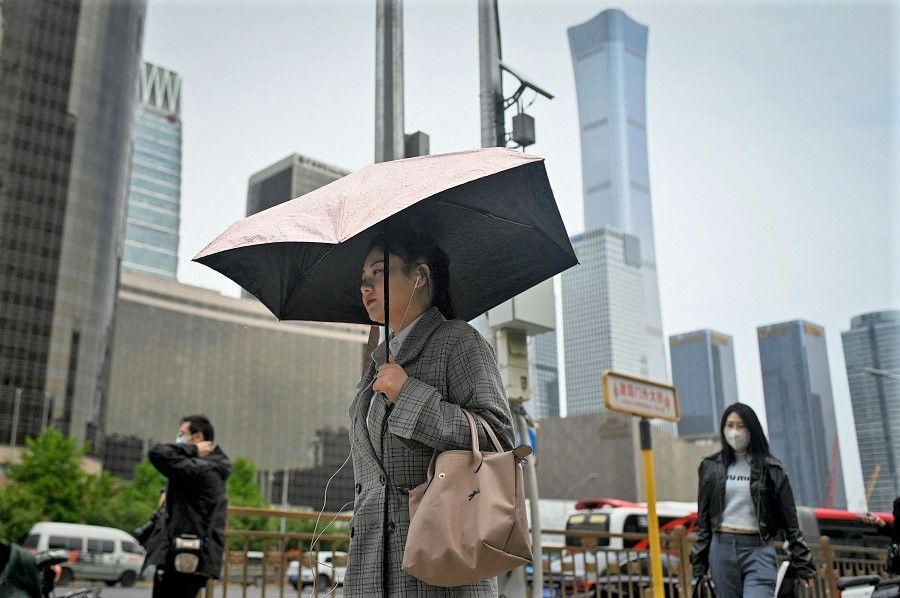
China's pension budget has also come under increasing pressure in recent years. Statistics from China's finance ministry showed that 11 out of China's 31 provinces, municipalities and autonomous regions are already running pension budget deficits. The Chinese Academy of Social Sciences estimated that the country's pension fund could run out by 2035.
Peng Xiujian, senior research fellow in the Centre of Policy Studies at Victoria University, analysed that China's pension system is no longer sustainable. While richer provinces currently fill the gap, Peng noted that it is not viable over the long term.
... the payment pressure on pension funds will further increase in the future as the country's poorer provinces are getting old before getting rich.
Professor Jiang Quanbao of Xi'an Jiaotong University's Institute for Population and Development Studies pointed out that with China's rapidly ageing population and increasing life expectancy, the payment pressure on pension funds will further increase in the future as the country's poorer provinces are getting old before getting rich.
Plan to raise retirement age sparking anger
In its 14th Five-Year Plan (2021-2025) and Long-Range Objectives for 2035 released in March 2021, the CCP planned to raise the statutory age for retirement in a "gradual, flexible and differentiated" manner by "taking small steps", "considering all factors and making overall plans", to deal with the ageing population and depleting pension fund.
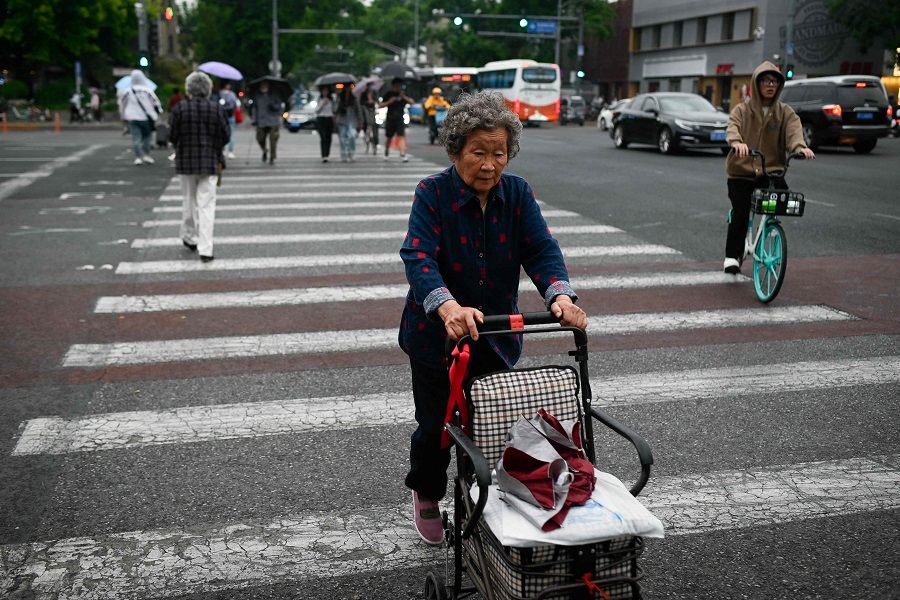
Over 40 years of reform and opening up, China's statutory retirement age has remained unchanged, at 60 for male workers, 55 for female cadres, and 50 for female workers. In Japan and Taiwan, which also face a serious ageing population and low birth rate issue, most male and female employees retire and receive pensions at 65.
However, the Chinese government's plan to raise the retirement age sparked a fierce backlash on social media, with tens of thousands of angry responses, especially among those who were nearing retirement age. Meanwhile, the younger generation feels that an increase in elderly employment would reduce their job opportunities.
The job market has remained bleak for China's youth in recent years. Latest statistics showed that China's surveyed urban unemployment rate for youths aged 16 to 24 hit 19.6% in March, up 1.5 percentage points from February. With more than 11 million college students set to enter the workforce this year, the youth unemployment rate could worsen.
In the face of public outrage, officials from China's Ministry of Human Resources and Social Security said in 2021 that the retirement age will not be raised in one fell swoop but in a gradual manner over several years - by a few months every year or a month every few months. In the early stages, employees nearing retirement age will only have to delay retirement by several months instead of a few years.
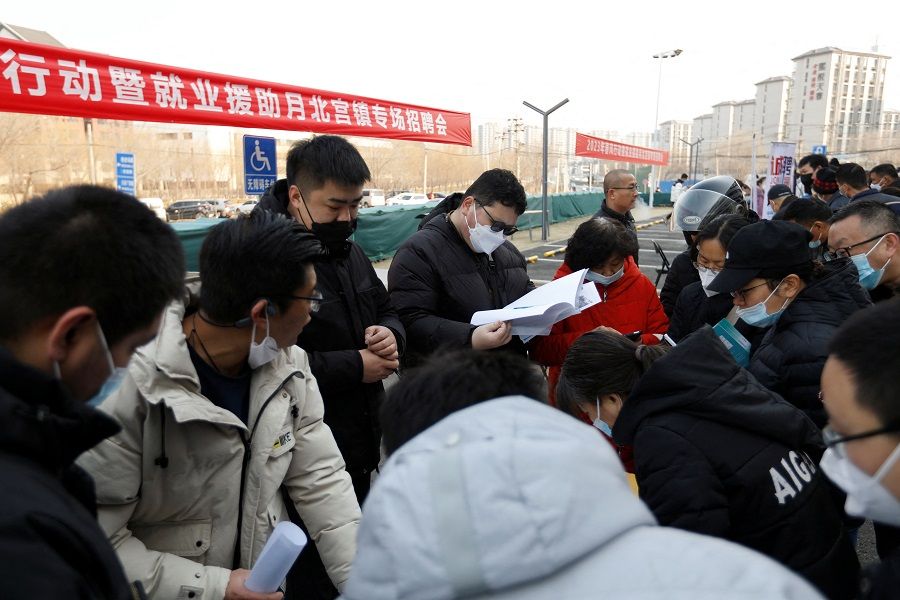
The Ministry of Human Resources and Social Security asserted that it will neither adopt a one-size-fits-all approach nor forbid employees to retire before the statutory retirement age. Instead, individuals will be given some space to exercise choice on when to retire.
In February this year, retired citizens in Hubei's Wuhan and Liaoning's Dalian, gathered in front of municipal government buildings to protest the drastic reduction in deposits to their personal accounts and the cuts to medical benefits...
Public discontent an 'unavoidable hurdle'
Chongqing University economics professor Yao Shujie said that the retirement age in most developed countries is around 65, regardless of gender. With life expectancy also going up, it is expected for China to raise the statutory retirement age, and a feasible way to do so is to gradually raise it to between 60 and 65 years old.
Tan Gangqiang, head of a psychology consultation centre in Chongqing (重庆市协和心理顾问事务所), feels that many older Chinese employees are retiring when they can best contribute, and delaying retirement age can help unleash more value from the workforce.
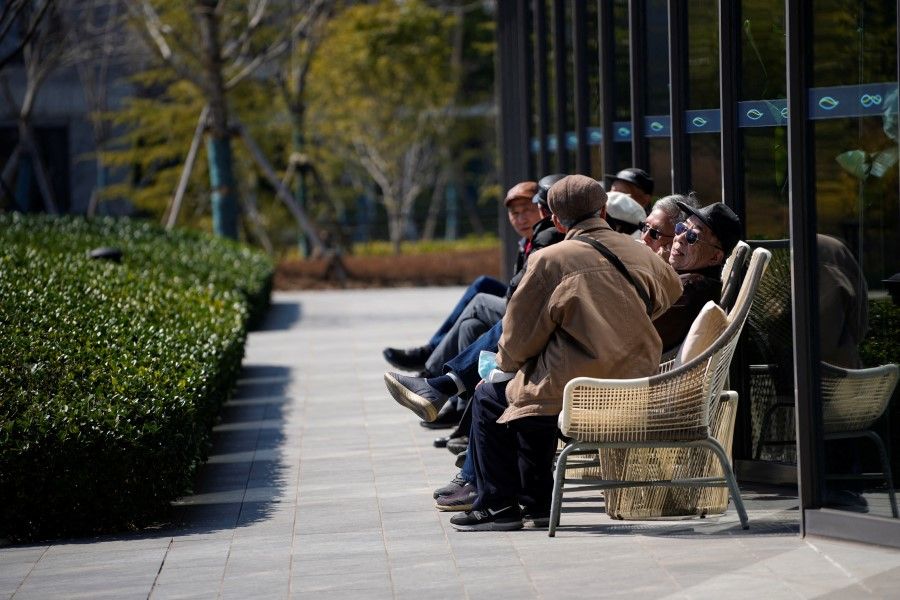
In February this year, retired citizens in Hubei's Wuhan and Liaoning's Dalian gathered in front of municipal government buildings to protest the drastic reduction in deposits to their personal accounts and the cuts to medical benefits, demanding that the authorities restore the original regulations.
Yao described public discontent as "an unavoidable hurdle". He said that the government must carefully evaluate the pension policy to avoid sudden reforms that could cause major financial losses for the employees. It is also necessary to improve the communication of policies to "mentally prepare people and give them a year or two to process them", so that employees understand the rationale and trust that the reform will not harm their interests.
Tan remarked that China's previous proposal to raise the retirement age faced public opposition mainly because public opinion focused on the government using the raise to relieve pension fund shortage. He said the focus should be on the value of the elderly workforce instead. There was also not much effort to assuage the young people's concerns about the elderly occupying jobs for longer.
Increasing pension fund through promoting economy
Meanwhile, Yao believes that retirement policies should be divided into two parts: the minimum statutory retirement age and the voluntary delayed retirement age, where employees can decide whether to retire depending on their health and financial status.
... it is necessary to prioritise the active development of the economy, "increase the economic pie, expand reform and opening up, and the market economy must not be shaken". - Tan Gangqiang, head of a psychology consultation centre in Chongqing
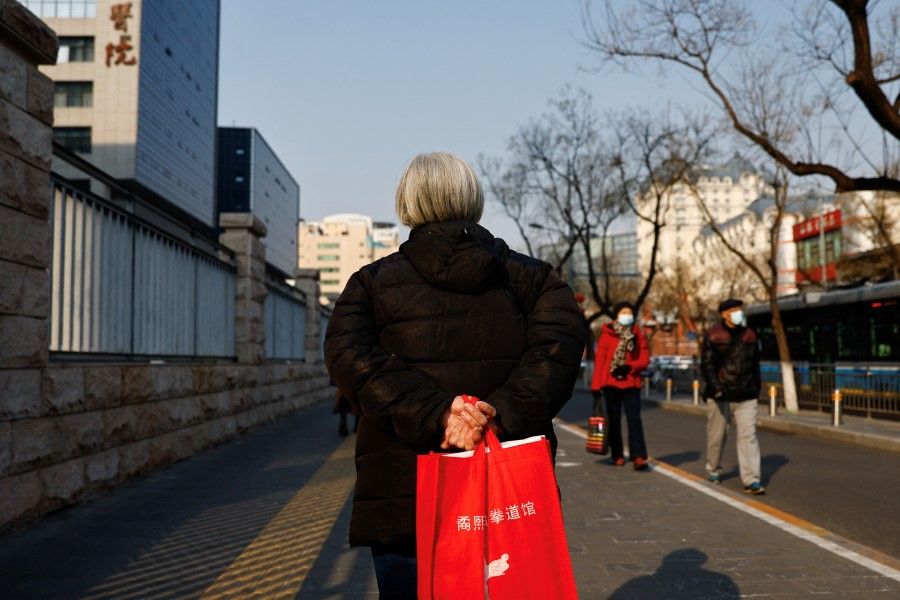
He feels that China can carry out pilots in select regions and industries, improve the new policies based on how well they work, and then promote them nationwide, which "would be more stable".
Tan noted that from the perspective of developing the long-term economy, it is necessary to prioritise the active development of the economy, "increase the economic pie, expand reform and opening up, and the market economy must not be shaken". More innovation-based jobs should be created, and the labour value of young people should be fully utilised, and sufficient employment should be resolved from the state-owned to the private economy.
Related: Will China's economy suffer a 'lost decade' just like Japan? | China's 'little emperors' of the 1980s are now the most burdened generation | Record 10.76 million Chinese university graduates face bleak job market and struggling economy | China's economic recovery has become a political issue | China experiments with livestream recruitment to fill job vacancies after Covid-19
